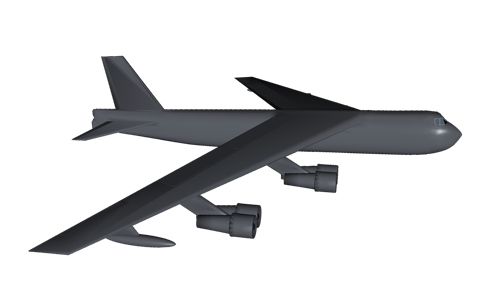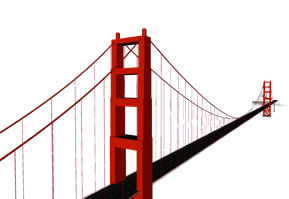About Open-DIS
DIS is one of the most widely used protocols in Department of Defense, NATO, and allied nations real time/virtual world modeling and simulation. Open-DIS is a free, open source implementation of the standard in Java, C++, Python, JavaScript, Objective-C and C#. The project uses a BSD-style open source license, which is non-viral and business-friendly.
Open-DIS is developed mainly by the MOVES Institute at the Naval Postgraduate School. Participation by other individuals and groups is welcome and encouraged.
Find us on GitHub.

Distributed Interactive Simulation
DIS is an IEEE standard (IEEE-1278.1) developed by the Simulation Interoperability Standards Group (SISO) and approved by IEEE. It is very widely used in real time, virtual world military simulations.
DIS is a network protocol. It describes the exact layout of a few dozen Protocol Data Units (PDUs) that contain information about the position and orientation of entities in the world, and much else. The are PDUs that describe electronic warfare, logistics, collisions, and simulation management.
- DIS Plain and Simple: an Introduction to DIS
- SISO DIS Protocol Support Group
- SISO DIS Protocol Development Group (Members Only)
- Wikipedia DIS Page
- Virtual Combat by David Neyland

Collaboration
We are interested in further implementation of the DIS standard for open source release. If you have a feature you want implemented we may be able to work with you to provide it, and also make it available to others. We believe there is substantial benefit to the government and industry in having a complete, out-of-the-box open source implementation of DIS. This would allow programmers to concentrate on implementing new features in the simulation itself, rather than rewriting the DIS code yet again.
Potential projects include implementing the DIS-200X standard now being developed in the SISO DIS Protocol Development Group, finishing some of the communications PDUs, implementing protocol finite state machines, bit-oriented subfields, testing and verification, an HLA gateway, and more.
Contact Don Brutzman (brutzman at nps dot edu) if you are interested in collaborative institutional efforts. NPS can accept a variety of funding vehicles from both government entities and private industry. Individuals who find the software useful can also contribute to the NPS Foundation via the link at left.
Don McGregor (mcgredo at nps dot edu) is the technical lead for the project.

Papers & Presentations
Several people have put together various papers and powerpoint presentations over the course of developing the Open DIS software. Some links to them are below.
Papers
- SISO Paper on Open-DIS: An Open Source Implementation of the DIS Protocol for C++ and Java
- IEEE VR 2010 Paper from the University of Louisiana: Integrating the DIS Standards Into a Fully-Immersive Simulation Application
- 2006 - DIS-XML: Moving DIS to Open Data Exchange Standards
Presentations
- Open-DIS Powerpoint Open-DIS.ppt
- Open-DIS flyer
- Efficient XML Interchange (EXI) and DIS
- Efficient XML Interchange Introduction–W3C standard for a more compact representation of XML
- IEEE VR 2010 Presentation from Univ. of Louisiana

Developers
Don McGregor
Don McGregor was a software developer at the Naval Postgraduate School (-2019). He created the Open-DIS project after becoming annoyed at the lack of an open source implementation. He is primarily to blame for the Java implementation.
John Grant
John Grant is a former developer for the Delta3D game engine who has now gone on to grab some of the filthy lucre offered by private industry. He specified much of the C++ code interface and integrated Open-DIS into the Delta3D game engine.
Peter Smith
Peter Smith is Electronics Engineer and Software Developer who works for the Naval Air Warfare Center. He has done the work on the C# Open DIS implementation.
Robert Harder
Robert Harder is an officer in the US Air Force. He implemented a Java NIO marshalling API that reduced memory use in real-time applications.
Sheldon Snyder
Sheldon Snyder is a a US Navy Officer. He implemented a dead reckoning library in Java.
Dioselin Gonzalez
Dioselin Gonzalez is a research scientist/software developer in the University of Louisiana at Lafayette. She specializes in collaborative virtual reality. Dio implemented C++ enumerations.
Don Brutzman
Don Brutzman is a Technical Director for 3D Visual Simulation at the MOVES Institute. He is an Associate Professor at the Naval Postgraduate School in Monterey, California. Professor Brutzman kept on asking why there wasn’t an open source implementation of DIS, and why it couldn’t be also be represented in XML. He also has a longstanding interest in compact representations of XML, such as EXI, and in applying web services to DoD Modeling and Simulation.
Leif Gruenwoldt
Leif Gruenwoldt is a software developer employed as an embedded contractor for the Department of National Defence, Canada. He is primarly responsible for maintaining the Java implementation which has included migrating the build system to Maven, publishing artifacts to Maven Central, adding JUnit tests, squashing bugs, and enabling continous integration with Travis CI. He is responsible for maintaining open-dis.org. And he helped migrate from SourceForge to GitHub.
Users
Based on project activity we believe there are many users of Open-DIS. But it’s not well known where and how it’s being used. We’d very much appreciate to hear from our users. Please feel free to open a pull request with a change to the below list to identify your project.
DIS plugin for Unreal
The US Air Force GRILL (Gaming Research Integration for Learning Laboratory) have used the Open DIS CPP project to create a DIS Plugin for Unreal.
https://github.com/AF-GRILL/DISPluginForUnreal
AUV Workbench (Naval Postgraduate School)
AUV Workbench is a tool for rehearsal and playback of autonomous vehicle operations. AUV Workbench makes use of both the binary and XML serialization formats. It can send both IEEE binary and XML formats, and can send messages over XMPP chat rooms.
https://savage.nps.edu/AuvWorkbench/
X3D-Edit (Naval Postgraduate School)
X3D-Edit is a tool for writing X3D models. X3D-Edit can also generate, record, and play back DIS, and visualize the movement in an X3D scene.
https://www.web3d.org/x3d/content/README.X3D-Edit.html
Delta3D (Naval Postgraduate School)
Delta3D is an open source game engine. It uses the C++ implementation of Open-DIS as one of its communications protocols (in addition to HLA).
https://en.wikipedia.org/wiki/Delta3D
Government of Canada
The Government of Canada uses the Java implementation of the Open DIS library in several software applications relating to Modeling, Simulation & Training.